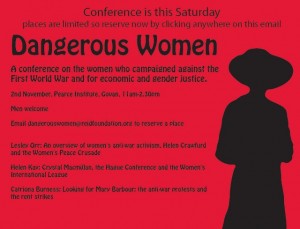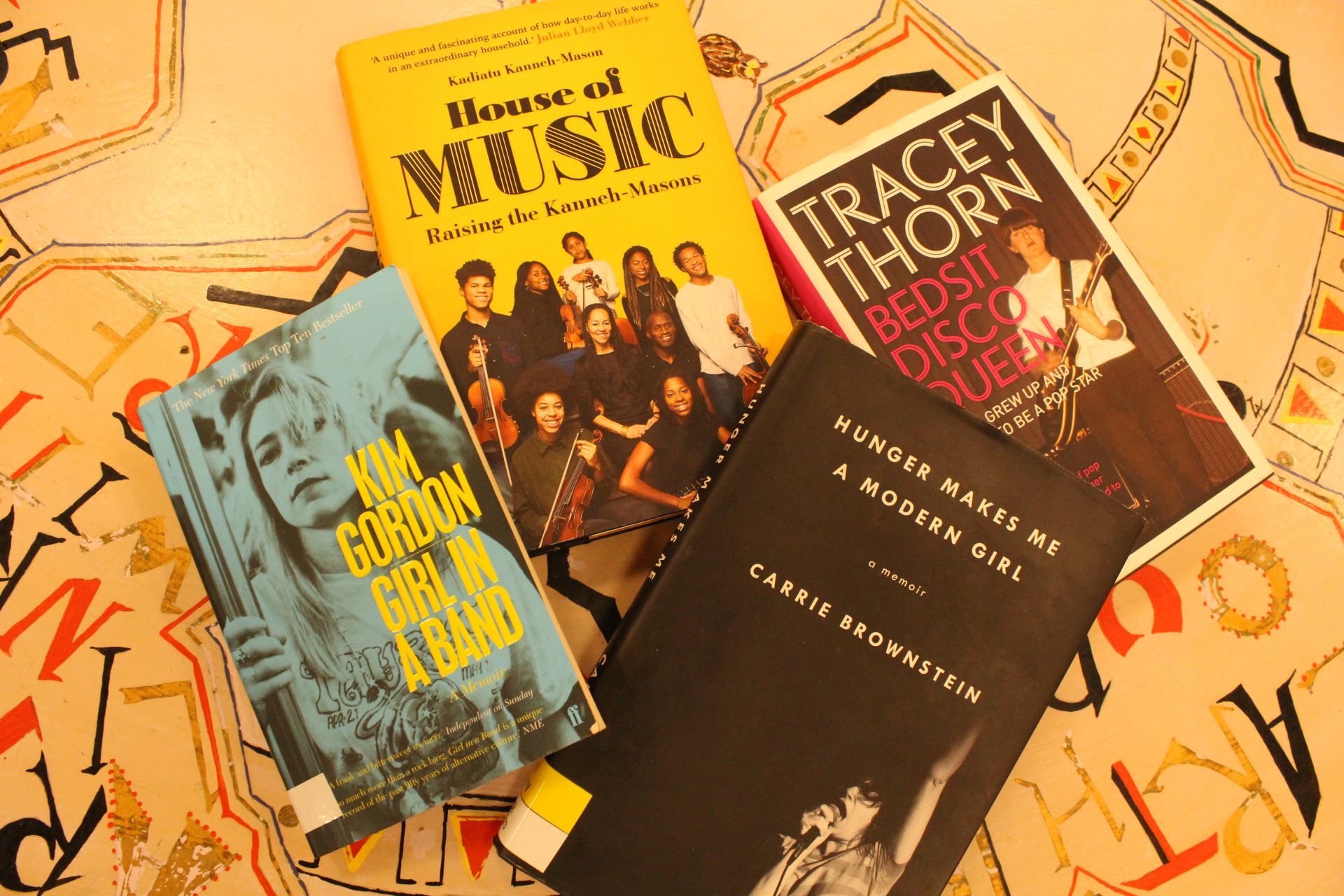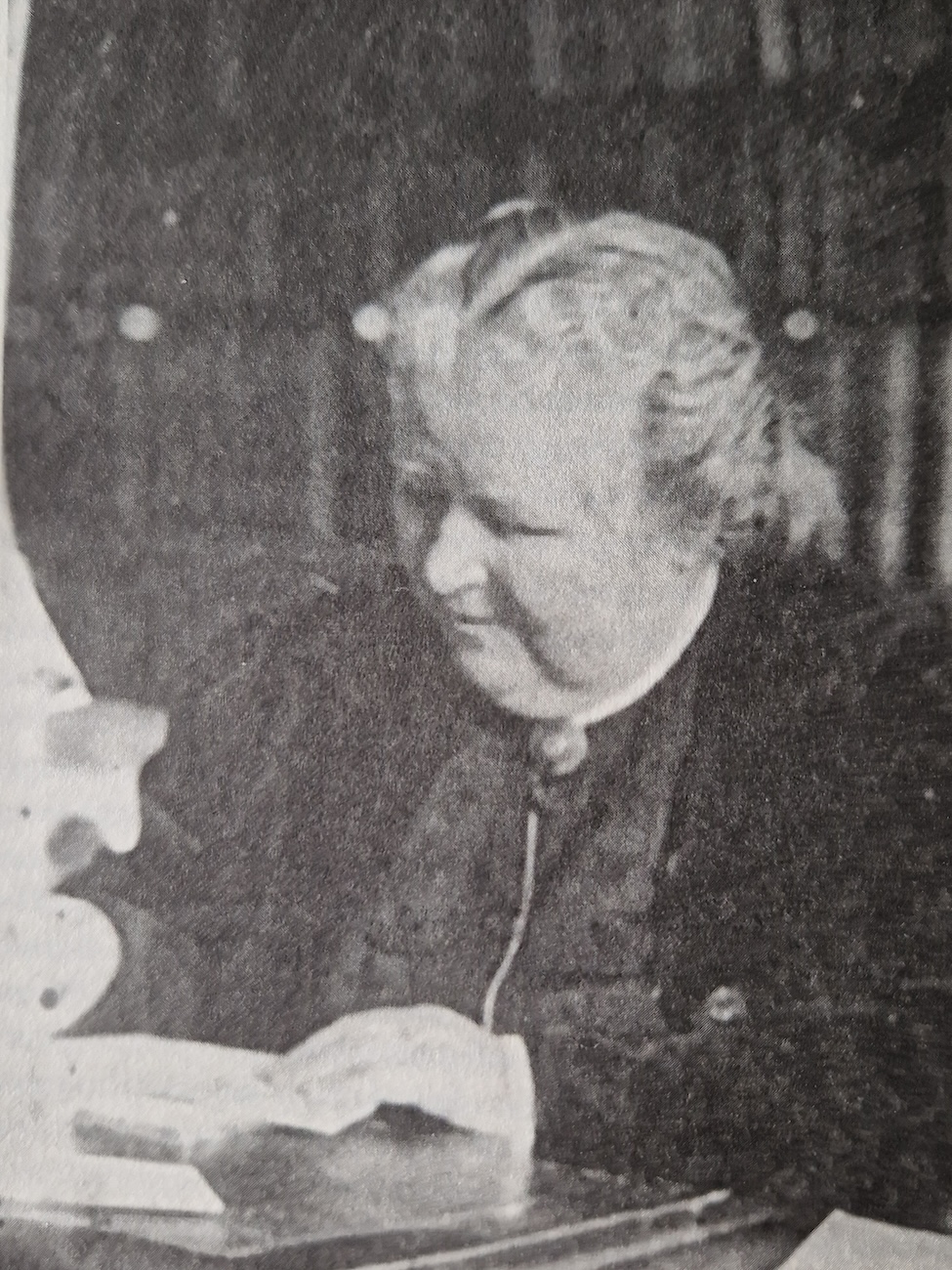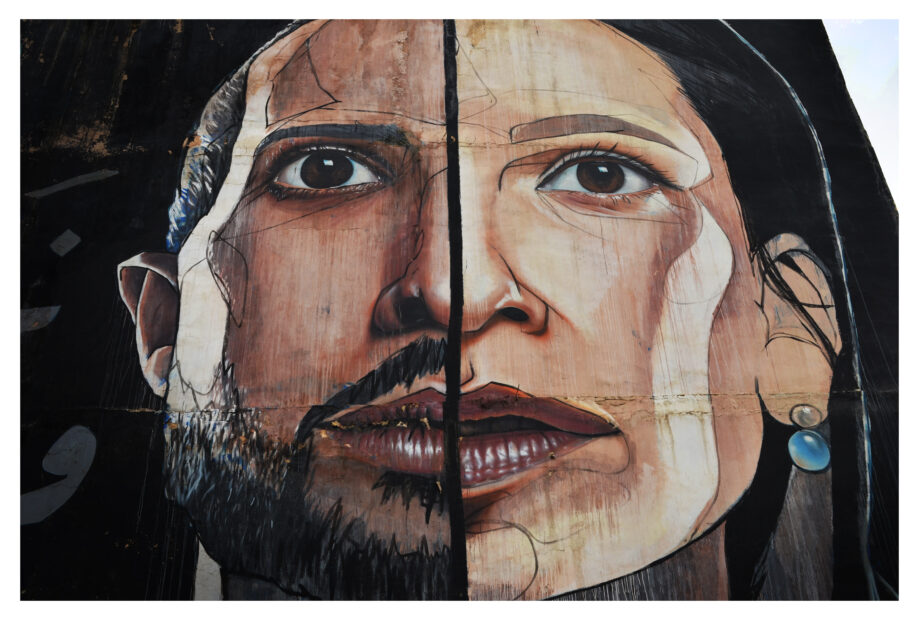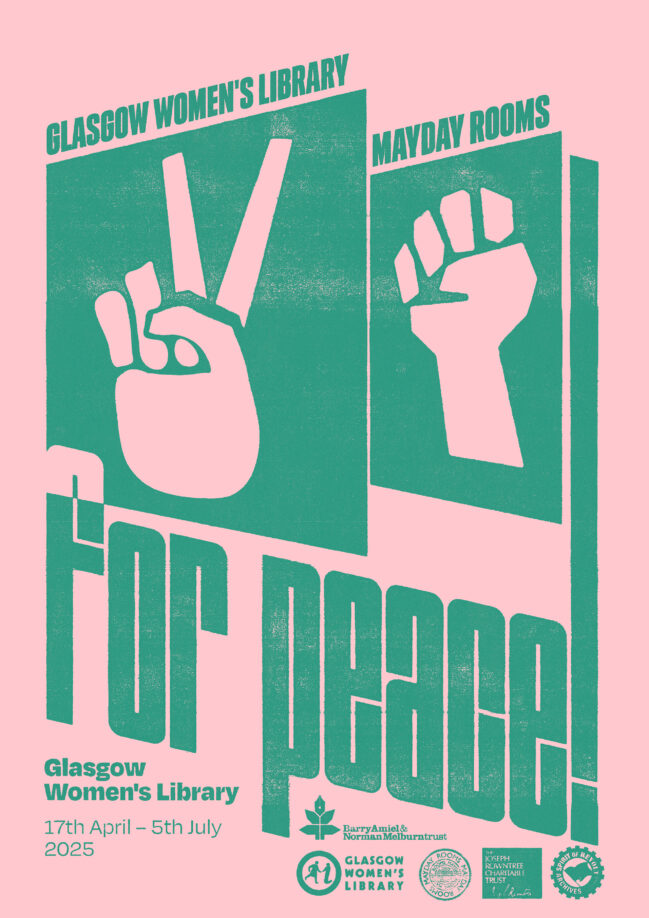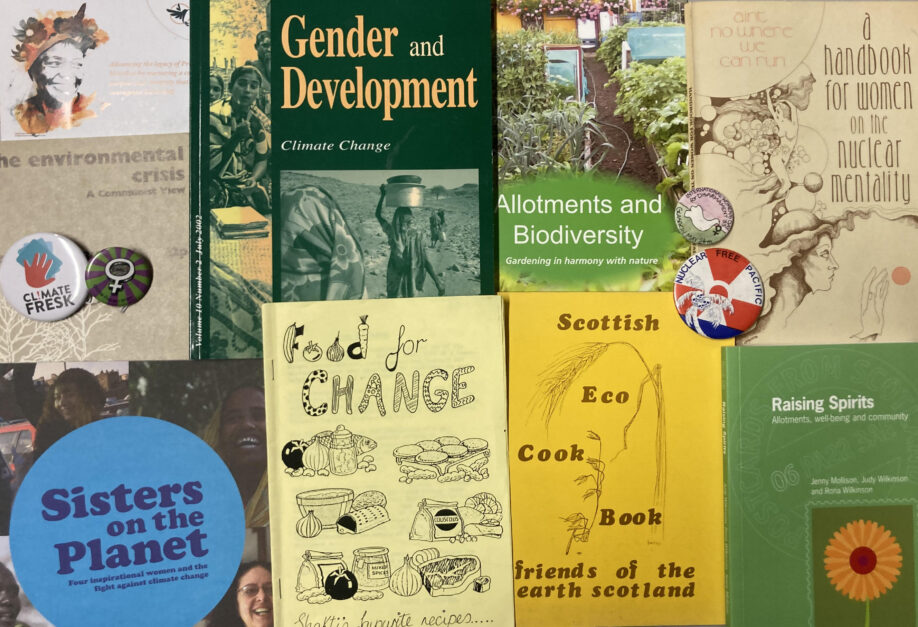On Saturday 2nd November, The Jimmy Reid Foundation offered a free, three-hour conference entitled ‘Dangerous Women: A conference on the women who campaigned against the First World War and for economic and gender justice’ at the Pierce Institute in Govan, Glasgow. In light of my recent forays into the historiography of the women’s suffrage movement and politicised women in the early twentieth century, and the currency of topics associated with the upcoming 2014 First World War Centenary, I decided to go along in the hope of broadening my knowledge.
Three speakers, Lesley Orr, Helen Kay and Catriona Burness, gave presentations of around 45 minutes each on three specific women, local to Glasgow, who made a marked contribution to campaigns for peace before and during the First World War, and to issues of socio-economic justice affecting women in the first decades of the twentieth century. Each speaker gave a very personal and detailed insight into her subject as an individual woman with a unique personality which really lit up the political landscape at the time.
Lesley Orr gave her presentation on An overview of women’s anti-war activism, Helen Crawfurd and the Women’s Peace Crusade. Helen Crawfurd was born in 1877 and went on to become one of Scotland’s most prominent suffragettes. She was a highly politically-aware socialist and member of the Independent Labour Party and, being opposed to a military response to the international political issues of the day, she left the predominantly pro-war Women’s Social and Political Union (WSPU) and was vocal in her disapproval of Christabel Pankhurst’s drive to recruit women as munitions workers in support of the war effort.
Helen was opposed to military action not least because she feared that it would offer the government of the day the opportunity to reassert gender norms, effectively undoing the groundwork that the suffrage movement had laid down by that point. She was a leading player in the Glasgow Peace Demonstration of August 1914 and the formation of the Women’s International League of 1915, and a formidable force behind the politicisation and mobilisation of women in Clydeside.
Helen helped to bring about the Women’s Peace Crusade in Glasgow in 1916, and was present at the WPC demonstration in July 1917 to which around 12,000-14,000 people flocked to voice opposition to military action. She highlighted WPC concerns about the perversity of women being expected to produce children for gun fodder, and was also involved in the 1915 Rent Strikes.
Helen Kay followed with her presentation, Chrystal Macmillan, the Hague Conference and the Women’s International League. A founding member of the Women’s Representative Committee, Chrystal was also actively involved with organisations including the International Women’s Suffrage Alliance, and was one of more than a thousand women from North America and Europe who attended the International Congress of Women to discuss peaceful negotiations and women’s suffrage in 1915. The result of this congress was the drawing up of twenty resolutions which called for international co-operation, peace education for children and the lobbying of governments. The Women’s International League For Peace and Freedom (WILPF) emerged from the International Congress of Women, and still campaigns for peace today.
Finally, Catriona Burness presented on Looking for Mary Barbour: the anti-war protests and the rent strikes. Mary Barbour was a member of the Independent Labour Party and was the leader of the 1915 Rent Strikes in Glasgow, which saw women mobilised against the socio-economic injustices of profiteering landlords who took advantage of the influx of munitions workers into the area during the period. The strikes were fuelled by women who were struggling in an atmosphere of rent increases coupled with generally poor economic conditions for the working classes, and by November 1915 around 20,000 had joined their numbers. A prominent ‘Red Clydesider’, Mary’s involvement with the Rent Strikes marked a phase of considerable politicisation of women in partnership with working men, supported by union involvement to effect change (the Rent Restriction Act 1915 was a direct result of the Rent Strikes of the same year). She also went on to champion positive local change as a Glasgow councillor, including the prevention of food waste and provisions to ensure child welfare. Just like Helen Crawfurd and Chrystal Macmillan, Mary Barbour was opposed to military conflict, and her acts and campaigns were instrumental in addressing the socio-economic crises that were the price of the war.
The Dangerous Women Conference posed several questions which the approach of the First World War Centenary has made all the more relevant. It asked us to consider the true extent to which we are informed and educated about the ‘what’, the ‘who’ and the ‘why’ of the conflict. It questioned why information continues to be presented to us in terms of the very male, ruling class political framework of the time, with any mention of opposition to war tending to be limited to a small selection of maverick parliamentary figures. There is an understandable reluctance to dwell on any pacifist outlook which may lead to our asking the saddest and most uncomfortable questions of all as we look back. However, to have our learning limited by this reluctance is to do the memory of the people and places of the First World War a terrible injustice.
The presentations were interesting not only because they taught us about the power and politicisation of three specific women within their historical context, but because they presented this information as a contrast to the ‘party line’ propaganda of support for soldiers, patriotism and the collective war effort which was so pervasive then and is, arguably, nearly as pervasive now. For instance, we are often led to believe that the entire suffragette movement became a temporary workforce en masse as the WSPU shifted from protest and demonstration to the war effort. In fact, as Helen Crawfurd’s case demonstrates, many objected vociferously and constructively to the expectation that women would ‘naturally’ support the war. What the speakers at the Dangerous Women Conference really showed us was that there was more of a pacifist, anti-war feeling within industrial centres and the working classes than we are often led to believe, and that this feeling was often driven by politicised women who feared for the impact that military action would have on politics, society and the economy.
The Jimmy Reid Foundation is keen to engage with next year’s First World War Centenary in order to inform and educate us about the role women played in opposing military action, supporting the pre, mid and post-war economies, protecting their families and strengthening women’s influence in political spheres as the twentieth century moved forward. The organisation of more events like Dangerous Women will facilitate a more rounded education on the subject of the First World War, which will bring both women and their opposition to the war into a more central position within the discussion. It would be wonderful if next year’s First World War Centenary heralded a fresh and broader way of studying and understanding the politics of the period, including a renewed perspective on the women who were the pacifists, socialists and demonstrators of the time as being representative of a considerable body of opinion.
If you’d like to know more about the Jimmy Reid Foundation and how you can get involved in future events and conferences, check out their website, and don’t forget that Glasgow Women’s Library has a wealth of materials available to help you to learn more about the role of women in the First World War, national and local politics, prominent local and national suffragettes and key organisations and events from the time. There’s lots to discover! You can also visit the Women’s International League for Peace and Freedom (WILPF) website for further information.
My sincere thanks to the Pierce Institute, Govan, and everyone at The Jimmy Reid Foundation for organising an excellent event – the number of people who came out on a windy, rainy Saturday morning is surely evidence of considerable interest in this subject! Special thanks, of course, to Lesley Orr, Helen Kay and Catriona Burness, who were good enough to take the time to share their enthusiasm and knowledge with us.

